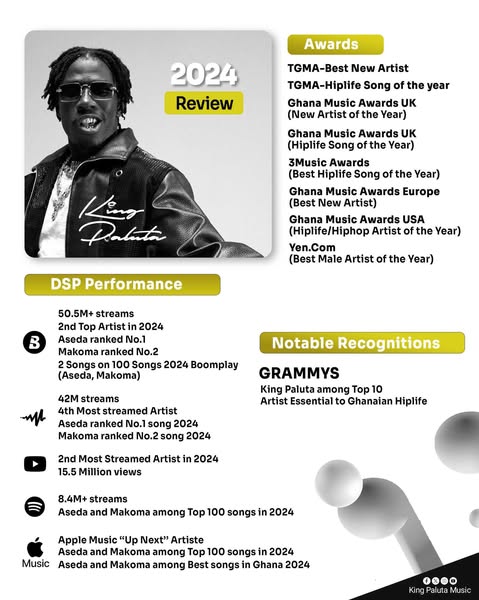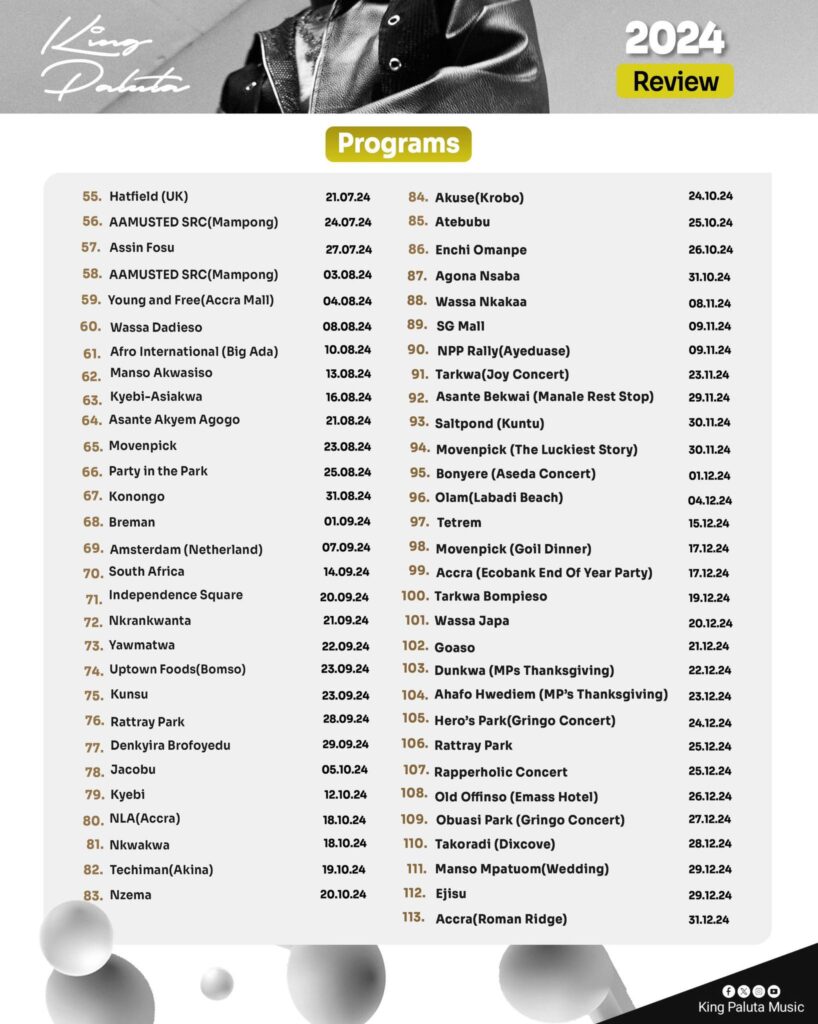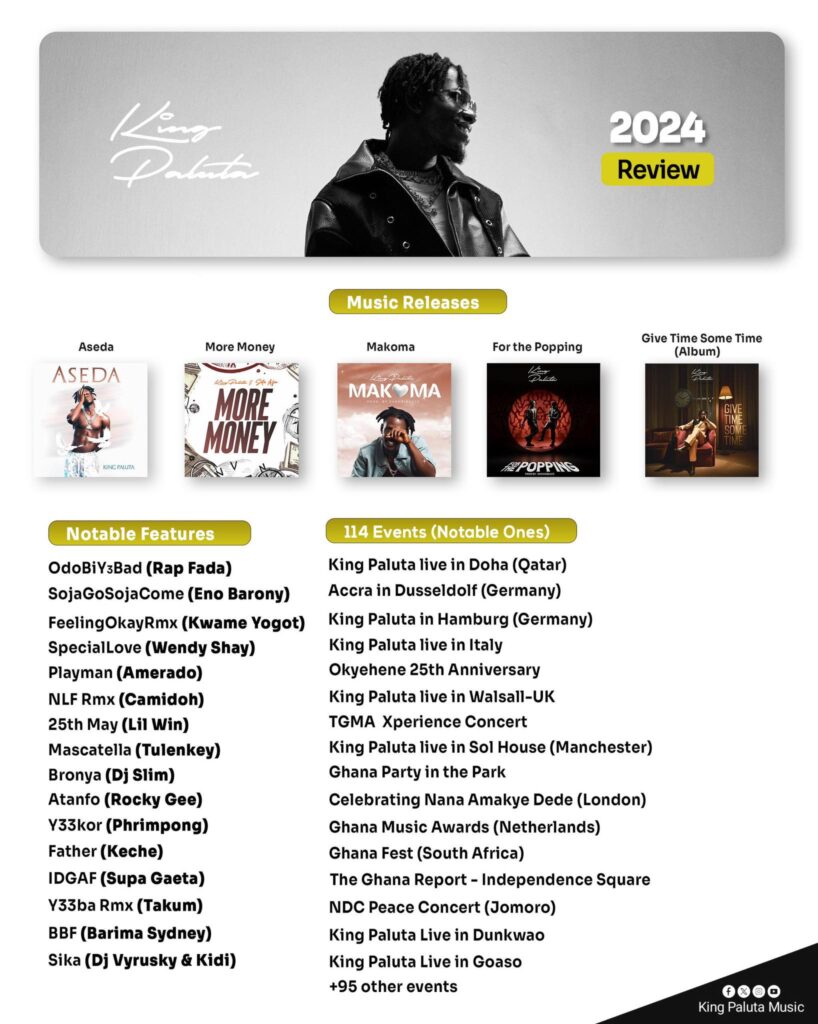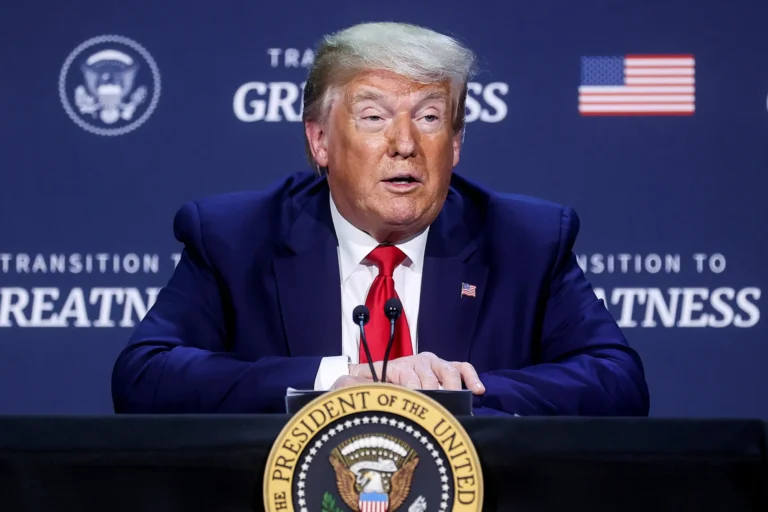The Board of the Telecel Ghana Music Awards (TGMA) has officially responded to queries about why King Paluta’s hit song ‘Makoma’ did not receive a nomination in this year’s awards scheme. Contrary to widespread speculation that the song was disqualified due to explicit content, the Board has clarified that the decision was based on an existing nomination rule.
A statement signed by Robert Klah, Head of Communications and Public Events at Charterhouse, emphasized that the TGMA enforces a one-song-per-artiste-per-category rule. This guideline ensures that an artist’s chances of winning remain strong while preventing vote-splitting among multiple nominations.

The Board explained that for every category, an artist can only have one song nominated, with exceptions granted for Best Collaboration, Best International Collaboration, and Best Music Video. In King Paluta’s case, both ‘Aseda’ and ‘Makoma’ were considered for nomination in the Highlife Song of the Year and Most Popular Song of the Year categories.
Using research that analyzed streaming numbers and airplay from 175 radio stations, the Board determined that ‘Aseda’ was the more widely received and commercially successful track. As a result, it was chosen over ‘Makoma’ for nomination.
The Board explained that for every category, an artist can only have one song nominated, with exceptions granted for Best Collaboration, Best International Collaboration, and Best Music Video. In King Paluta’s case, both ‘Aseda’ and ‘Makoma’ were considered for nomination in the Highlife Song of the Year and Most Popular Song of the Year categories.



Using research that analyzed streaming numbers and airplay from 175 radio stations, the Board determined that ‘Aseda’ was the more widely received and commercially successful track. As a result, it was chosen over ‘Makoma’ for nomination.
This is not the first time the TGMA has enforced the one-song-per-category policy. In 2016, Highlife star Bisa Kdei faced a similar situation when he had two popular songs: ‘Mansa’ and ‘Brother Brother’. Only ‘Mansa’ received a nomination, as he was asked to select his biggest song for submission.
In later years, the TGMA relaxed this rule, allowing multiple songs from an artist in a single category. However, the latest decision marks a return to the original nomination approach.
While some music fans and industry players have criticized the decision, others believe it aligns with global award standards. The Grammys and other international music awards also enforce similar rules to avoid vote dilution.
With the TGMA restoring this policy, artists will have to carefully decide which of their songs to prioritize for nominations in future editions.

King Paluta’s omission from this year’s TGMA nominations was not due to profanity in ‘Makoma’, but rather a strategic rule designed to strengthen an artist’s chance of winning. With the awards scheme maintaining a firm stance on this regulation, musicians and fans must adjust their expectations accordingly.
WATCH VIDEO BELOW




